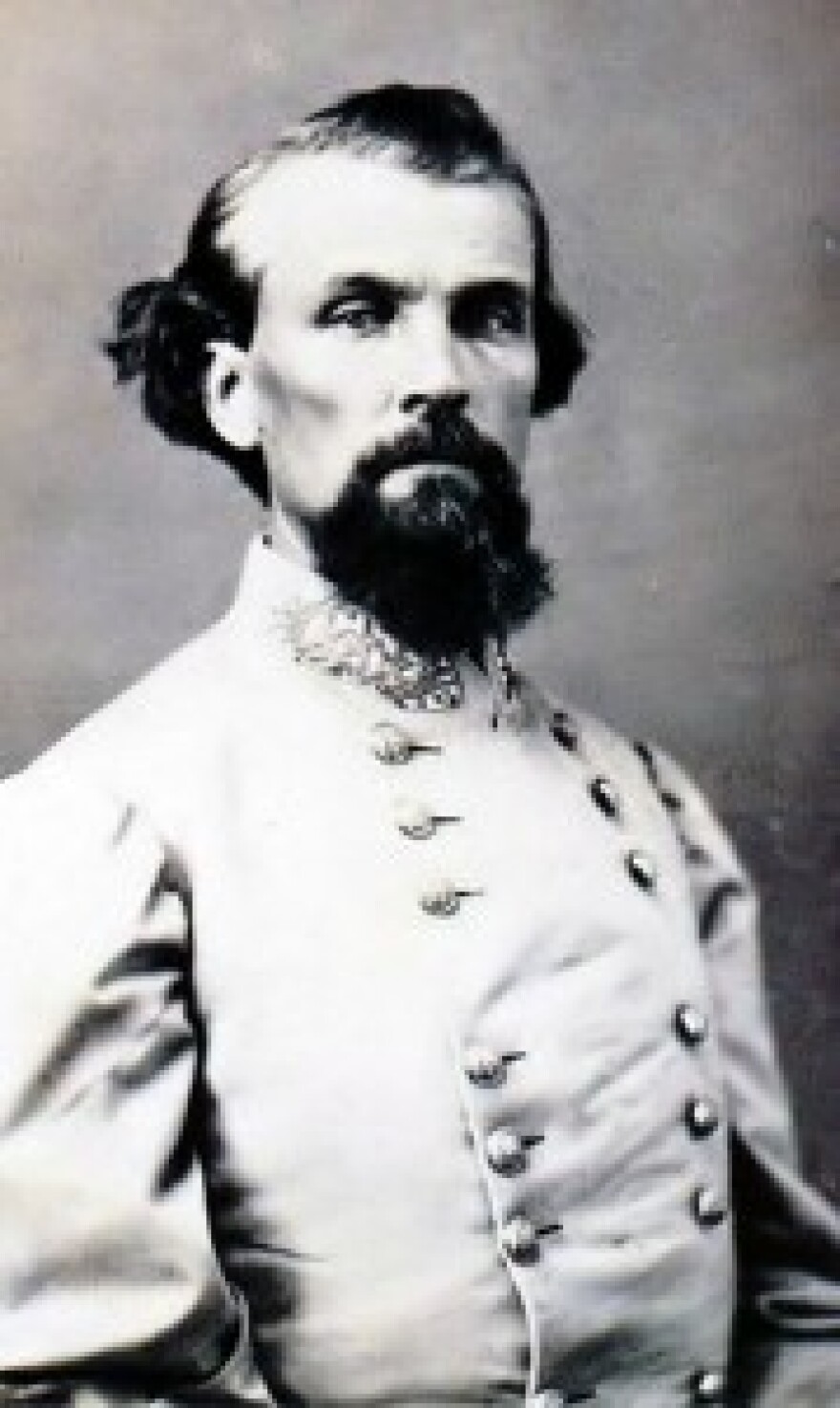After more than a half century of controversy, Nathan B. Forrest High School in Jacksonville is looking for a new name.
In 1959, Forrest High was named for Nathan Bedford Forrest—the Civil War general and early leader of the Ku Klux Klan.
But Monday night, on the recommendation of Superintendent Nikolai Vitti, the Duval County School Board voted unanimously to rename the high school.
“There are deep divides on some levels between communities—that goes back to slavery, it goes back to Jim Crow,” Vitti told StateImpact Florida in June. “At some point we have to go beyond talking about it to doing t
He says the new name will be chosen by students and other community stakeholders.
StateImpact Florida reporter Sammy Mack sat down again with Duval Superintendent Nikolai Vitti to talk about what’s in a name:
Q: We just watched the school board vote unanimously to change the name of Nathan B. Forrest High School. We don’t know what it will become. For you as the superintendent, what does this mean?
A: I think it means making a recommendation and then receiving the board’s approval to move forward as a city and a school district on and issue that has been divisive.
Q: We heard a lot of comments from folks who were for and against renaming Forrest. And I noticed on both sides there were people who were saying we need to move past this. What is it you think Jacksonville is leaving behind with this change?
A: What was particularly striking for me was the fact of how the school was named. The students by vast majority wanted the name of the school to be Valhalla. Yet politics reigned. The Daughters of the Confederacy lobbied the school board and the name of the school ended up being Nathan B. Forrest.
And that was clearly a reaction to the civil rights movement and desegregation.
What I think is concerning about that is, one: it negated the voice of the students. But it also was a sign of the resistance to racial equality.
Q: This is not the first time that there’s been a vote about whether or not to change Forrest High’s name. The last time was as recently as 2007, 2008—at which point the board elected not to. And they did so along color lines. What has changed in that short amount of time?
A: It’s hard for me to speak directly to that. I wasn’t here when that vote occurred. I can just tell you that we have a very progressive board that selected an agent of change—which is myself. I came to Jacksonville to do things differently on behalf of children.
And not only what I said, but what board members said, is that we ran to be child-centric. We ran to represent the interest of children, not adults.
Q: You’ve been here as superintendent for a little over a year. What have you learned about your community through this debate over the name of the school?
A: What I was particularly proud of is that there was no name calling, there was very little sarcasm. That signaled to me the maturity of a city. A city that is moving beyond the history of slavery, of Jim Crow, of desegregation—and seeing a new Jacksonville.
Q: What do you hope the students get out of what has happened in the past couple months here?
A: I hope this scenario gives credence to the fact their voice matters.
It allows them at some level to hear their voice, so that when they leave the soon-to-be-changed-name of Forrest High School, that whatever it is that they do—whether they vote, run for office, whether they go on to their job, raise a family—whatever they do, that they realize that their voice matters.




